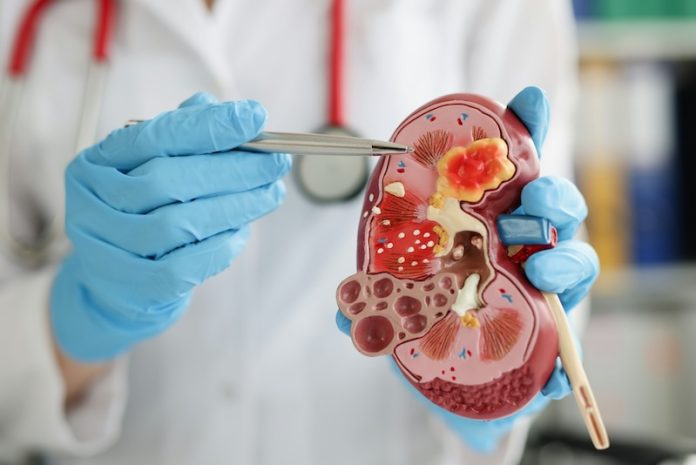
Chronic kidney disease (CKD) is a major health problem affecting millions of people worldwide.
Despite its widespread impact, doctors and scientists have struggled to fully understand why kidney damage keeps getting worse in CKD patients.
However, new research from Boston University’s Chobanian & Avedisian School of Medicine has identified a protective gene called TMIGD1, which could change the way CKD is diagnosed and treated.
Scientists have found that the TMIGD1 gene plays a critical role in keeping kidneys healthy. Dr. Vipul Chitalia, the lead author of the study, explained that the exciting part of this discovery is how TMIGD1 contributes to kidney failure.
When researchers inactivated this gene in their experiments, they found that the kidneys became more vulnerable to damage. This means that TMIGD1 might be an important natural defense system that protects kidney cells from harm.
The study also sheds light on how toxins in the body contribute to kidney failure. Scientists already know that toxic buildup is a major cause of CKD, but this study showed that these toxins may actually interfere with the TMIGD1 gene, making kidney damage worse. This discovery helps explain why CKD tends to get worse over time and could offer a new target for treatment.
The identification of TMIGD1 as a key player in kidney health could be a game-changer for CKD treatment. According to Dr. Wenqing Yin, one of the study’s co-authors, this gene could serve as both a treatment target and a tool for early screening.
- New Treatments: Scientists hope that future drugs could protect or enhance TMIGD1 activity, helping to prevent or slow kidney damage.
- Better Diagnosis: Since the gene is linked to kidney health, doctors might be able to develop tests that detect CKD earlier, allowing for earlier treatment before serious damage occurs.
With this breakthrough, researchers are optimistic about the future of CKD treatment.
If further studies confirm the role of TMIGD1 in humans, it could lead to new therapies and screening methods that significantly reduce the number of people who develop end-stage kidney disease, which requires dialysis or a kidney transplant.
By unlocking the mystery of this protective gene, scientists have opened the door to better prevention, earlier detection, and more effective treatments for CKD.
This research was published in the Journal of Neuroinflammation and marks an important step forward in understanding kidney disease.
If you care about stroke, please read studies about how to eat to prevent stroke, and diets high in flavonoids could help reduce stroke risk.
For more information about health, please see recent studies about how Mediterranean diet could protect your brain health, and wild blueberries can benefit your heart and brain.
Copyright © 2025 Knowridge Science Report. All rights reserved.



